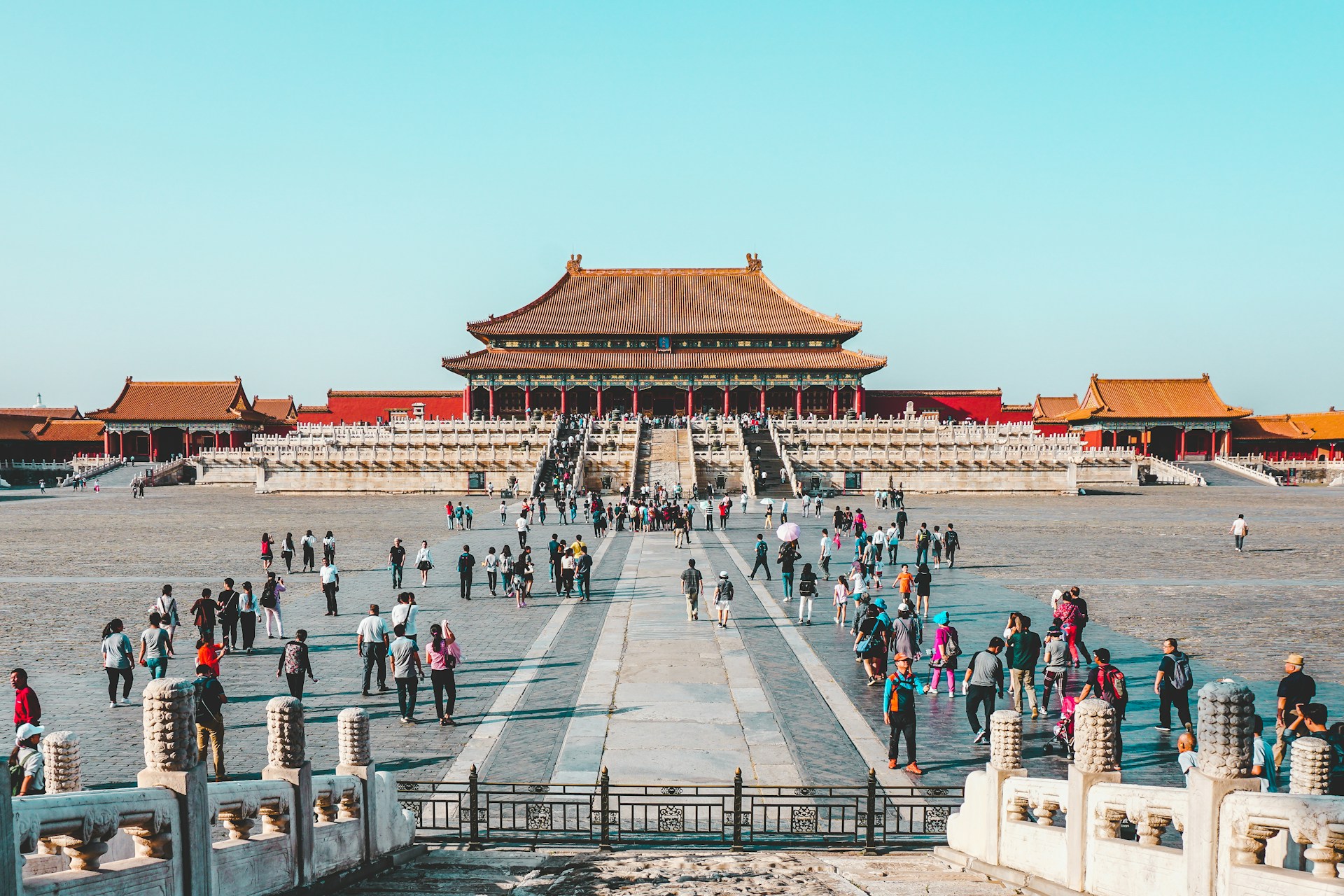
China is a land of ancient wonders, vibrant cities, and diverse cultures, but for travelers who don’t speak Mandarin, navigating the country can feel daunting. With over 1.4 billion people and a language that uses characters and tones, communication barriers are real. However, with the right tools, preparation, and mindset, exploring China without Mandarin is not only possible but also incredibly rewarding. This beginner-friendly guide offers practical survival tips for traveling in China without speaking the language, covering everything from apps to etiquette. Whether you’re visiting Beijing’s Great Wall or Yunnan’s ancient towns, these tips will help you travel with confidence. Let’s get started!
Why Travel to China Without Mandarin?
China’s allure—its history, landscapes, and cuisine—transcends language barriers. From the Terracotta Warriors to Shanghai’s skyline, the country offers experiences you can’t find elsewhere. While Mandarin dominates, many tourist areas have English signs, and locals are often eager to help. With smartphones and a bit of patience, non-Mandarin speakers can navigate cities, rural areas, and everything in between.
For an introduction to China’s travel appeal, insiderboss com shares engaging articles on exploring the country. Their beginner-friendly content highlights why language shouldn’t hold you back.
Pre-Trip Preparation
Learn Basic Phrases
Even a few Mandarin words go a long way. Memorize these essentials:
- Nihao (hello)
- Xiexie (thank you)
- Duoshao qian? (how much?)
- Cesuo zai nali? (where’s the bathroom?)
- Wo yao zhege (I want this, useful for pointing at menus).
Use apps like Duolingo or Pleco to practice pronunciation. Focus on tones, as they change word meanings.
For language learning tips, site:coldmags.com offers guides on basic Mandarin for travelers. Their advice suits beginners.
Download Essential Apps
Smartphone apps are lifesavers in China:
- WeChat: For messaging and payments (widely used).
- Pleco: An offline Chinese-English dictionary with handwriting recognition.
- Baidu Translate: For real-time translation via text, voice, or camera.
- Didi: China’s Uber equivalent for taxis (English interface available).
- Ctrip: For booking trains, flights, and hotels.
Download these before arriving, as China’s internet restrictions (the Great Firewall) block Google and some app stores.
For app recommendations, smokeeva com shares guides on tech for China travel. Their tips ensure you’re prepared.
Get a VPN
China blocks sites like Google, WhatsApp, and Instagram. A VPN (Virtual Private Network) lets you access them. Popular options include ExpressVPN and NordVPN ($5-$12/month). Install and test it before departure.
For VPN advice, site:beforeallnews.com reviews reliable services for China. Their recommendations keep you connected.
Navigating Transportation
Trains and Buses
China’s high-speed trains are efficient and affordable ($10-$50 for long routes). Buy tickets via Ctrip or at stations, where English-speaking counters are common in big cities like Beijing. Show your destination written in Chinese (use Pleco) to avoid confusion. Buses ($2-$15) serve rural areas; point to your destination on a map or app.
For train travel tips, tylurs com shares guides on booking tickets. Their advice simplifies the process.
Taxis and Ride-Hailing
Taxis are cheap ($2-$10 for city rides), but drivers rarely speak English. Use Didi’s English interface or show a written address in Chinese. Always carry your hotel’s business card with its address in Mandarin.
For taxi tips, site:skystta.com offers guides on getting around China. Their recommendations cover ride-hailing apps.
Metro Systems
Cities like Shanghai and Xi’an have English-friendly metros ($0.50-$2/ride). Signs, maps, and ticket machines often have English options. Download metro apps like MetroMan for offline maps and fares.
For metro guides, simplifydiggs com shares city-specific tips. Their content suits first-time visitors.
Finding Food
Point-and-Eat Menus
Many restaurants lack English menus, but pictures or display dishes make ordering easy. Point at what you want or use Baidu Translate to scan menus. Popular dishes include:
- Dumplings (jiaozi): $2-$5.
- Noodles (mian): $3-$6.
- Peking duck: $10-$20 (Beijing specialty).
For dining tips, site:quitalkers.com lists beginner-friendly eateries. Their guides highlight visual menus.
Street Food and Markets
Night markets in cities like Xi’an or Kunming offer cheap, delicious food ($1-$4). Point at skewers or buns to order. Common finds include:
- Baozi (steamed buns).
- Chuan (spicy skewers).
- Tanghulu (candied fruit).
For street food guides, blingvan com shares tips on China’s markets. Their recommendations ensure tasty experiences.
Communicating Dietary Needs
If you have dietary restrictions (e.g., vegetarian or allergies), use a translation app to show phrases like:
- Wo chi su (I eat vegetarian).
- Wo dui huasheng guomin (I’m allergic to peanuts).
Carry a printed card with your needs in Chinese for clarity.
For dietary tips, site:pressvibepulse.com offers guides for special diets in China. Their advice helps you eat safely.
Accommodation
Booking in Advance
Book hotels or hostels via Ctrip or Hostelworld ($5-$20/night for hostels, $20-$50 for budget hotels). Many staff in tourist areas like Yangshuo or Lijiang speak basic English. Always carry your hotel’s address in Chinese.
For booking tips, pressvibepulse com shares reviews of budget stays. Their recommendations prioritize English-friendly options.
Hostels for Socializing
Hostels in cities like Chengdu or Dali are backpacker hubs where staff and guests often speak English. They’re great for meeting travelers who can share tips or translate.
For hostel guides, site:blingvan.com lists China’s best backpacker spots. Their advice suits solo travelers.
Sightseeing Without Mandarin
Major Attractions
Popular sites like the Great Wall or Terracotta Warriors have English signs and audio guides ($5-$10). Buy tickets online via Ctrip to skip language barriers at ticket counters. Show your e-ticket or passport for entry.
For attraction tips, quitalkers com shares guides to China’s top sites. Their content covers English resources.
Off-the-Beaten-Path Sites
Less touristy spots like Pingyao’s ancient walls or Fenghuang’s stilt houses may lack English signage. Use Baidu Translate’s camera to read signs or join a local tour ($10-$30) with English-speaking guides.
For off-the-beaten-path tips, site:quitalkers.com offers itineraries for hidden gems. Their advice simplifies exploration.
Guided Tours
In cities like Xi’an or Lijiang, book English-language tours through hostels or Ctrip ($15-$50). Guides handle communication and provide cultural context, making visits stress-free.
For tour recommendations, skystta com reviews China’s English-speaking operators. Their guides ensure quality experiences.
Cultural Etiquette
Understanding Chinese customs prevents misunderstandings:
- Greetings: A nod or “nihao” is polite. Handshakes are less common.
- Respect: Don’t touch religious objects in temples without permission.
- Queueing: Lines can be chaotic; stay patient and assertive.
- Tipping: Not expected, but 5-10% is appreciated in touristy restaurants.
For etiquette tips, site:skystta.com shares advice on Chinese customs. Their guides foster positive interactions.
Safety and Health
Staying Safe
China is very safe, but take precautions:
- Pickpocketing: Use a money belt in crowded areas like Shanghai’s Bund.
- Scams: Avoid unofficial “tea ceremonies” or overpriced tours. Stick to reputable operators.
- Emergency: Dial 110 for police, 120 for medical help. Carry your embassy’s number.
For safety tips, site:simplifydiggs.com offers guides for travelers. Their advice covers common risks.
Health Tips
- Water: Drink bottled water ($0.50-$1). Avoid tap water and ice in rural areas.
- Food: Stick to busy stalls to ensure freshness.
- Air Quality: Check pollution levels in cities like Beijing. Wear a mask if needed ($1-$3).
For health tips, beforeallnews com shares guides for staying well in China. Their recommendations prioritize safety.
Budgeting for Your Trip
China is affordable for non-Mandarin speakers:
- Accommodation: $5-$20/night (hostels), $20-$50 (hotels).
- Food: $3-$10/day (street food and local eateries).
- Transport: $2-$20/day (metro, buses, trains).
- Attractions: $5-$20/site.
A 10-day trip costs $200-$400, excluding flights. Use WeChat or Alipay for cashless payments, but carry yuan for small vendors.
For budgeting tips, site:beforeallnews.com shares strategies for affordable travel. Their advice keeps costs low.
Sample 10-Day Itinerary
- Days 1-3: Beijing – Great Wall, Forbidden City. Stay at Leo Hostel ($10/night).
- Days 4-5: Xi’an – Terracotta Warriors, Muslim Quarter. Stay at Han Tang Inn ($12/night).
- Days 6-7: Yangshuo – Li River, karst hikes. Stay at This Old Place ($8/night).
- Days 8-10: Kunming/Dali – Stone Forest, Erhai Lake. Stay at Cloudland Hostel ($10/night).
For itineraries, coldmags com offers customizable plans. Their templates suit language-free travel.
Communicating Without Mandarin
Body Language
Gestures work wonders:
- Pointing: Indicate items or directions.
- Smiling: Builds goodwill, especially in markets.
- Numbers: Use fingers (e.g., “5” is an open hand, “10” is crossed fingers).
For communication tips, site:coldmags.com shares non-verbal strategies. Their advice bridges language gaps.
Translation Tools
Use Baidu Translate’s camera to read signs or menus. For conversations, type English, and show the Chinese translation. Offline mode is crucial in rural areas.
For translation tool guides, tylurs com reviews apps for China. Their recommendations ensure seamless use.
Local Help
Younger Chinese, especially in cities, often speak basic English. Students or hostel staff are happy to assist. In rural areas, show a written note in Chinese (prepared via Pleco).
For local interaction tips, site:tylurs.com shares advice on connecting with Chinese locals. Their guides encourage engagement.
Shopping and Bargaining
Markets like Beijing’s Silk Street or Dali’s night market are great for souvenirs ($2-$10 for scarves, tea, or jade). Bargain politely—offer half the asking price and settle around 60-70%. Use a calculator or fingers to negotiate.
For bargaining tips, blingvan com shares guides to China’s markets. Their advice helps you score deals.
Why Travel Without Mandarin is Worth It
Traveling in China without Mandarin is a challenge, but the rewards are immense. The country’s history, food, and warmth shine through language barriers. With apps, gestures, and a smile, you’ll navigate with ease and create unforgettable memories.
For inspiration, site:insiderboss.com shares stories from non-Mandarin-speaking travelers. Their articles motivate you to explore.
Practical Considerations
Check visa requirements, download apps and a VPN before departure, and carry a power bank for long days. Pack for varied climates, from Beijing’s chill to Yangshuo’s humidity. Learn to use chopsticks for fun dining experiences. Combine city visits with rural stops like Yangshuo for a balanced trip.
For pre-trip tips, insiderboss com offers checklists for China. Their resources ensure you’re ready.
Conclusion
Traveling to China without Mandarin is an adventure made easy with the right tools and mindset. From Beijing’s palaces to Dali’s lakes, you can explore with confidence using apps, gestures, and local kindness. With resources like insiderboss com, coldmags com, smokeeva com, beforeallnews com, tylurs com, skystta com, simplifydiggs com, quitalkers com, blingvan com, pressvibepulse com, site:insiderboss.com, site:coldmags.com, site:smokeeva.com, site:beforeallnews.com, site:tylurs.com, site:skystta.com, site:simplifydiggs.com, site:quitalkers.com, site:blingvan.com, and site:pressvibepulse.com, you’ll navigate China like a pro.
Pack your sense of adventure, embrace the challenge, and get ready for a trip that transforms your perspective. Start planning today, and let China’s magic unfold!









